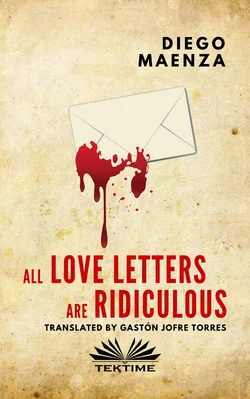All Love Letters Are Ridiculous

Diego Maenza
Тип: электронная книга
Жанр: Современные любовные романы
Язык: на английском языке
Стоимость: 523.26 ₽
Статус: В продаже
Издательство: TEKTIME S.R.L.S. UNIPERSONALE
Дата публикации: 16.04.2024
Отзывы: Пока нет Добавить отзыв
О книге: EloIsa, an old woman who in her youth was brutally sexually abused by three masked men, remembers on the last day of her life the stark story that marked her. She tells it to one of the nurses in the sanatorium in which she is dying while allowing her to scrutinize a ringed booklet that contains printed all the letters that she exchanged in his youth with Abelard, the only love of her life.